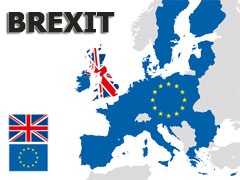 The United Kingdom's vote to leave the European Union, popularly known as Brexit (British Exit), was decided on June 23rd 2016. More than 33 million people came out to vote on the referendum with 51.9% voting in favor of the change.
The United Kingdom's vote to leave the European Union, popularly known as Brexit (British Exit), was decided on June 23rd 2016. More than 33 million people came out to vote on the referendum with 51.9% voting in favor of the change.
The UK now needs to notify the EU of its intention to formally leave by filing under Article 50 of the Lisbon Treaty. Finalization of this separation could take up to 2 years or more. How will Brexit impact the aviation industry in the short and long run?
What Happened Since The Brexit Vote?
With the uncertainty of Britain’s future after a vote in favor of a British Exit, immediate effects have been felt. British Prime Minister, David Cameron, announced he would step down after campaigning for Britain to stay in the EU. According to CNN, a record $3 trillion was wiped out from global markets due to the Brexit vote. European stock markets dipped and the sterling value fell to its lowest in over three decades. Standard & Poor’s Global Ratings downgraded Britain’s triple-A credit rating by two notches to double-A. Fitch Ratings also decreased its rating from AA+ to double-A. Some of these figures have slowly started to rebound since the initial shock.
Economic Effects on the Aviation Industry
 Prolonged uncertainty regarding Brexit will surely have economic impacts. Businesses and households are more likely to delay spending given that the future is unknown. With the sterling value falling, air travel outbound from the UK will be more expensive for residents. Inbound trips by foreigners will be more attractive since the weaker sterling value has further stretched the value of their own currency. Potentially, the lack of outbound traffic could offset the influx of inbound traffic.
Prolonged uncertainty regarding Brexit will surely have economic impacts. Businesses and households are more likely to delay spending given that the future is unknown. With the sterling value falling, air travel outbound from the UK will be more expensive for residents. Inbound trips by foreigners will be more attractive since the weaker sterling value has further stretched the value of their own currency. Potentially, the lack of outbound traffic could offset the influx of inbound traffic.
By the year 2020, the number of UK air passengers could be lowered by 3-5% relative to a no Brexit scenario, driven by the expected downturn of economic activity and the fall in the sterling exchange rate. Although the short term impact to the UK air freight market is less certain, freight will surely be affected by lower international trade in the long term. Estimates suggest UK trade volumes could fall 10-20% by 2030.
Regulatory Effects on the Aviation Industry
Having the UK as part of the European Union gives it access to Europe’s Single Aviation Market. If indeed Brexit happens, many negotiations would have to take place regarding trade and travel. In the short run, the regulatory environment for the air industry will have little to no immediate affects. The UK will still have to abide by all EU legislation, but won’t have any influence over new or changing policies.
It’s hard to predict what aviation policy changes could come from Brexit. It depends on the nature of the exit terms and future arrangements between the UK and EU. Two key issues remain: access for UK airlines and customers to the European Single Aviation Market and policy freedom for the UK to set its own regulations. A trade-off must be made.
What do you think about Brexit and how it might impact the air transport industry? Let us know your thoughts.
Source - IATA Analysis: http://www.iata.org/publications/economic-briefings/impact-of-brexit.pdf
